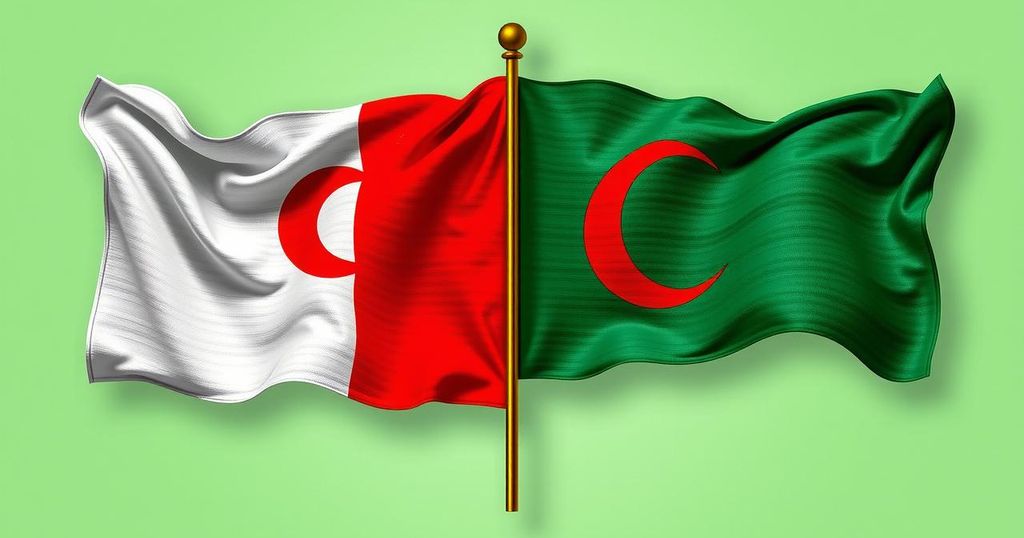The African Union has praised Turkish President Erdogan for brokering a peace agreement between Somalia and Ethiopia, which aims to resolve nearly a year of escalating tensions. The leaders affirmed their mutual sovereignty and commitment to cooperation during their meeting in Ankara. This agreement is seen as a significant step toward lasting peace in the region, reflecting the necessity for dialogue and support among East African nations.
MOGADISHU, Somalia – The African Union has commended President Recep Tayyip Erdogan of Türkiye for facilitating a peace agreement aimed at resolving the prolonged tensions that have characterized Somalia-Ethiopia relations for nearly one year. The agreement, signed by Somali President Hassan Sheikh Mohamud and Ethiopian Prime Minister Abiy Ahmed, represents a significant diplomatic achievement, having been mediated by President Erdogan in Ankara. Moussa Faki Mahamat, the head of the African Union Commission, emphasized the importance of this agreement, urging both parties to promptly implement the outlined measures.
In a joint announcement following their meeting on Wednesday, the leaders expressed a mutual commitment to fostering cooperation and peace between their nations. President Erdogan stated, “We have taken the first step toward a new beginning based on peace, cooperation between Somalia, Ethiopia.” The pact comes against the backdrop of historical tensions since 1991, when Eritrea gained independence from Ethiopia, leading to Ethiopia’s loss of direct access to important Red Sea ports.
Relations between Somalia and Ethiopia had been strained further by Ethiopia’s prior agreement with Somalia’s breakaway region of Somaliland to utilize the Berbera port. Türkiye has been active in mediating discussions to ease these hostilities. Following their engagement in Ankara, the two leaders reaffirmed their commitment to each nation’s sovereignty and territorial integrity, adhering to international law and the principles set forth by the African Union. This cooperative spirit aims to forge a path toward shared prosperity while leaving past grievances behind.
The recent agreement between Somalia and Ethiopia follows a series of geopolitical tensions involving the two countries. After Eritrea gained independence from Ethiopia in 1991, Ethiopia faced significant logistical challenges due to the loss of port access. Relations became even more fragile with Ethiopia’s dealings with Somaliland, leading to a need for effective mediation. The African Union has played a pivotal role in regional peace efforts, recognizing the importance of dialogue and cooperation among East African nations. President Erdogan’s involvement signals Türkiye’s growing influence in East Africa, aiming to stabilize regional dynamics and promote economic partnerships. The backdrop of historical conflict has created an urgent need for amicable solutions to ensure peace and support the welfare of the peoples in the region.
In conclusion, the African Union’s endorsement of the peace agreement between Somalia and Ethiopia represents a hopeful stride towards stability in the Horn of Africa. Under the auspices of President Erdogan, both Somali and Ethiopian leaders have demonstrated their commitment to dialogue and mutual respect. The Ankara declaration serves not only as a catalyst for cooperation but also emphasizes the importance of prioritizing sovereignty and international law, indicating a potential shift toward peace and collaborative growth in the region.
Original Source: www.aa.com.tr







